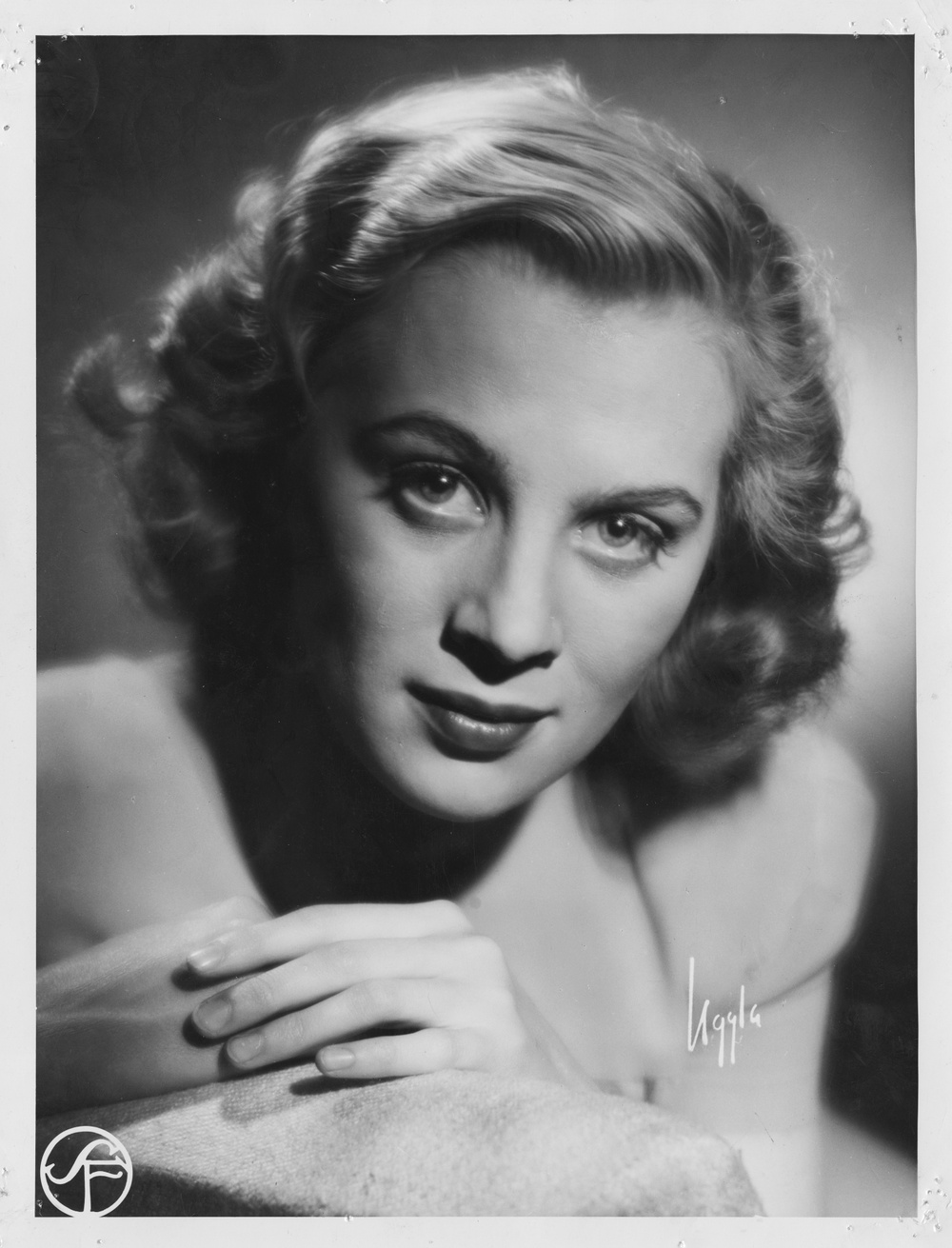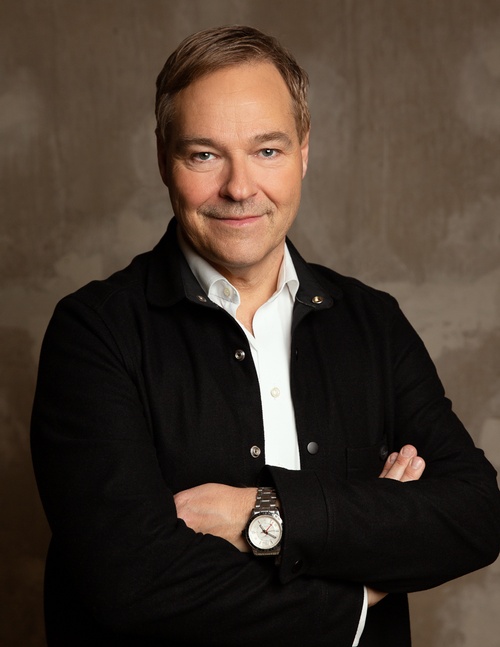Mai in May at New York’s Film Forum
 Mai Zetterling 1946. Photo: SF Studios.
Mai Zetterling 1946. Photo: SF Studios.The renowned arthouse cinema Film Forum in New York presents a Mai Zetterling retrospective beginning on 6 May. A total of 21 films by and with her will be screened in two weeks. Mai Zetterling’s son Louis Lemkow Zetterling, is on site for a Q&A on 19 May. Actress Harriet Andersson has recorded a digital introduction to the acclaimed feminist pic The Girls from 1968.
Mai Zetterling (1925-1994) was a Swedish actor, author, screenwriter and film director.
She debuted as an actor in the early 1940’s, making her big breakthrough in Alf Sjöberg’s film Torment (1944), written by Ingmar Bergman. More success followed when Gustaf Edgren gave her the lead in the rural drama Sunshine Follows Rain (1946), one of the biggest Swedish box-office successes of the post-war period. In the same year Zetterling also appeared in the class drama Iris and the Lieutenant for which she won a Best Actress award at the Venice Film Festival.
Zetterling’s first feature-length film as director was Loving Couples from 1964. With its sexual candour, the film caused some upset when I premiered at Cannes Film Festival but received predominantly positive reviews. British critic Kenneth Tynan referred to Loving Couples as “one of the most ambitious debuts since Citizen Kane”.
Night Games (1966) - the film’s depiction of incestuous love provoked consternation and new scandal, this time at the film festival in Venice, where there was a police cordon around the press screening. And in San Francisco, Shirley Temple resigned from the festival’s board.
With The Girls (1968), Zetterling staged a playful confrontation with prejudices, politics and gender roles, told from the perspective of three actresses who go on tour with Aristophanes’ Lysistrata. The male critics of the time did not understand the film and it got bad eviews.
In the UK her fifth feature Scrubbers (1982) was produced, in which she dramatised life at a borstal for young girls. As in several of Zetterling’s other films, Scrubbers depicted love and sex between women.
Mai Zetterling was one of the founders behind the international association known as Film Women International, which was formed at the UNESCO women’s film symposium during the UN-termed International Women’s Year, 1975. Other members included Susan Sontag, Agnès Varda and Chantal Akerman. The Women’s Year also gave Zetterling an opportunity to make the short film We Have Many Names (1976), which premièred at the Cannes Film Festival. Not until 1986 did Zetterling return to Swedish film, with Amorosa (1986).
“Mai Zetterling was a pioneer and ground-breaker in the world of film. Her films often provoked debate about everything from gender roles and sexuality to seal-hunting. Somewhat reluctantly and without particular feminist intentions, she came to be a role model for later generations of women filmmakers. We are very happy that our digital restored prints are screened all over the world and now presented at Film Forum in the biggest retrospective ever of Mai Zetterling in North America.” – Kajsa Hedström, project manager Film Heritage, Swedish Film Institute.
"We’re excited to partner with the Swedish Film Institute on the most complete US retrospective of Mai Zetterling to date, and to premiere SFI’s new restorations of her work. Zetterling was a pathbreaking artist whose insightful, daring and wholly original features deserve to be seen by a wider audience.” —Elspeth Carroll, series programmer and Film Forum’s associate repertory programmer.
“I cannot understate how delighted I am by such a well deserved, timely and complete retrospetive of Mai's work as a filmmaker. Her outspoken and critical views on a whole range of social issues represented in her highly original and creative style were often met with hostility and not understood or appreciated in her time. Today, I think her films are more relevant than ever and deserve greater dissemination and recognition. Film Forum's tribute is a splendid acknowledgement of Mai's legacy.” Louis Lemkow Zetterling – Mai Zetterling’s son
More information: Kajsa Hedström, project manager Film Heritage, Swedish Film Institute kajsa.hedstrom@filminstitutet.se or +46 8 665 11 22
The program: Film Forum · MAI ZETTERLING
About The Swedish Film Institute
The Swedish Film Institute is a collective voice for film in Sweden, and a meeting-place for experiences and insights that elevate film on all levels. We preserve and make available Sweden’s film heritage, work to educate children and young people in film and moving images, support the production, distribution and screening of valuable film, and represent Swedish film internationally. A broad diversity of narratives establishes discussions and insights that strengthen the individual and our democracy. Together, we enable more people to create, experience and be enriched by film.
Contacts
